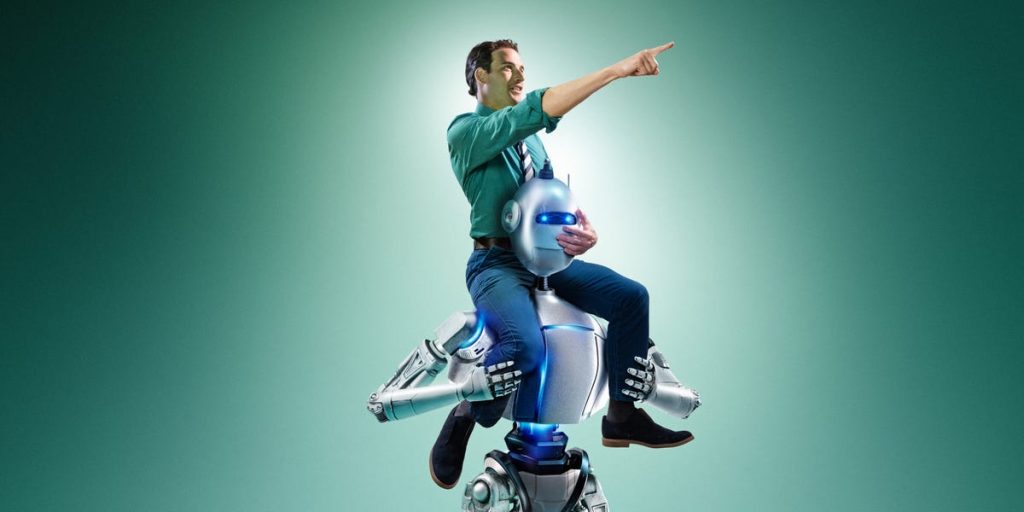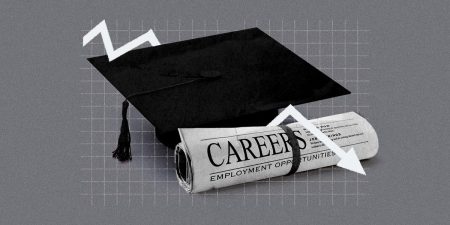Gen Z Embraces AI for Efficiency and Balance
Abigail Carlos, a 26-year-old media strategist at Warner Bros. Discovery, exemplifies how Gen Z workers are leveraging AI to streamline their workflows and enhance productivity. As the holiday season approached, Carlos found herself overwhelmed with the launch of new shows, prompting her to turn to AI tools like ChatGPT and Perplexity to draft professional yet personable emails. She credits AI with cutting her workload in half, allowing her to focus on creative tasks. Carlos isn’t alone in her reliance on AI; she uses it for everything from revising her LinkedIn profile to brainstorming ideas for her poetry. This mindset of "working smarter, not harder" underscores a broader trend among Gen Z employees, who are increasingly turning to AI to free up time, improve work-life balance, and add more meaning to their roles by automating tedious tasks.
A Generational Shift in Workplace Dynamics
The integration of AI into the workflows of Gen Z workers is reshaping the dynamics of the modern workplace. According to a Google survey, 93% of Gen Z knowledge workers use at least two AI tools weekly, compared to their older counterparts. This generational embrace of AI is driven by both opportunity and anxiety. On one hand, AI offers a way to stay ahead in a rapidly evolving job market, where automation is increasingly prevalent. On the other hand, the fear of job displacement looms large, with studies predicting that entry-level roles—dominated by Gen Z—will be the first to be impacted by automation. This duality of motivation is shaping how young workers view and interact with AI in their professional lives.
The Double-Edged Sword of AI Reliance
While AI has proven to be a powerful tool for Gen Z workers, concerns are emerging about its long-term impact on their professional development. Monique Buksh, a 22-year-old law student and paralegal in Australia, uses AI tools like Westlaw Edge, Lexis+, and Grammarly to handle legal research and document drafting. However, some experts warn that over-reliance on AI could hinder the development of critical thinking and problem-solving skills. A study by TalentLMS found that 40% of Gen Z respondents believed AI limited their growth by taking over tasks they could have learned from. Additionally, research from Microsoft and Carnegie Mellon University suggests that heavy reliance on AI may reduce critical thinking abilities, particularly among younger workers.
The Rise of AI as a Divide in the Workforce
The growing dependence on AI among Gen Z workers is creating a divide in the workplace. Companies are increasingly favoring candidates with AI expertise, with a Microsoft and LinkedIn survey revealing that 71% of leaders prefer hiring candidates with AI skills over those with traditional experience. This shift is pushing older workers to adapt or risk being left behind. However, experts caution against assuming that older generations are less capable of embracing AI. Stephanie Forrest, CEO of TFD, a London-based marketing agency, argues that older workers can thrive with the right support. The workplace of the future may ultimately be divided between those who embrace AI and those who do not, potentially pushing out older workers if companies fail to provide inclusive training opportunities.
Resisting the Over-Reliance on AI
Not all Gen Z workers are convinced that AI is the answer to every workplace challenge. Nicholas Portello, a Gen Z professional in New York, is skeptical of the instant gratification AI provides, arguing that it can stifle creativity and productivity. He believes that some of the best ideas emerge from human Interaction and open communication, rather than AI-generated solutions. This perspective highlights the importance of balancing AI use with human ingenuity. Experts like Kyle Jensen, an English professor at Arizona State University, emphasize the need for young workers to develop deep expertise in their fields, enabling them to use AI as a supplement rather than a substitute for critical thinking.
Finding the Human Touch in an AI-Driven World
Ultimately, the key to thriving in an AI-driven workplace lies in understanding when to lean on technology and when to rely on human strengths. As Deborah Golden, Deloitte’s US chief innovation officer, notes, collaboration and innovation often arise from the "messiness of human interaction," which AI cannot replicate. Erica Keswin, a workplace strategist, adds that many Gen Z workers missed out on critical in-person mentorship due to the pandemic, leading them to seek guidance from AI instead of their managers. While AI offers invaluable efficiencies, it cannot replace the creativity, empathy, and interpersonal skills that define human interaction. The challenge for both employees and organizations is to harness the power of AI while preserving the qualities that make us uniquely human.












